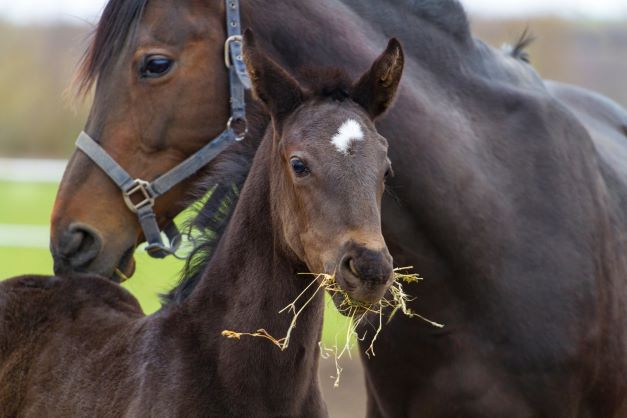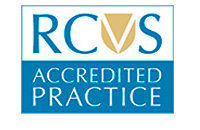24 hour contact: 01707 666297
RVC launches first comprehensive study of umbilical cord torsion in thoroughbreds
Researchers at the Royal Veterinary College (RVC) have been awarded funding to build on their studies into umbilical cord torsion (UCT) in thoroughbreds. This research, funded by the Alborada Trust, continues the first ever comprehensive study of UCT in the world. It will explore causation as well as develop novel diagnostic tools to enable veterinary surgeons to detect and monitor the condition.

Sadly, one in 25 UK thoroughbred pregnancies result in pregnancy loss during mid to late gestation, a figure that has shown no significant improvement over the last 30 years. This results in the loss of approximately £1.1 million for owners every year as well as vet costs in the region of £1.2 million. The most common cause of this in the UK, accounting for nearly half of cases sent to a laboratory, is UCT. This is the excessive twisting of the umbilical cord which leads to blockage of the blood supply and the subsequent death of the foetus.
Across the globe, with the exception of Australia, the proportion of pregnancy loss attributed to UCT is significantly lower. This is most noticeable compared to North America, with UK occurrences 10 times higher than in the USA. The reason why certain pregnancies result in long or excessively twisted umbilical cords, and for this dramatic geographic variation in occurrence, is poorly understood.
Researchers at the RVC are leading a collaboration with colleagues at Cornell University, Rossdales Laboratories and Hagyard Equine Medical Institute to explore the reason why the umbilical cord twists excessively mid-pregnancy. Together, they hope to establish new ways of detecting the twisting prior to the pregnancy being aborted.
The RVC-led team is driving for an international consensus on UCT. The team will use epidemiological modelling to refine and update the current diagnostic criteria for UCT, allowing for more reliable comparisons between populations within the UK and overseas. This would facilitate the accurate diagnosis of the condition by veterinarians globally and allow researchers to identify risk factors to optimise the management of pregnant mares.
Researchers will also characterise subcomponents and key proteins of the umbilical cord in both normal and diseased cords to identify any potential regions of the cord that could be monitored clinically. These areas will then be examined using ultrasonography in mid-gestation to assess the diagnostic potential for mares that are at risk of UCT abortion.
The development of novel diagnostic tools will also enable veterinarians to predict mares at risk of suffering a UCT pregnancy loss and monitor the efficacy of novel treatments for the condition. Ultimately, the findings from this project will push forward the understanding of this cause of equine pregnancy loss, and abortion more widely.
Jessica Roach, Research Fellow at the RVC, said:
“The generous funding from The Alborada Trust will allow us to build on our understanding of umbilical cord torsion, which is such a frustrating cause of abortion to breeders and veterinarians alike. This project brings together researchers who are leading their field and I hope that this will allow us to forward our understanding of this condition. Our aim is to develop novel diagnostic tools to identify pregnancies with a torsed umbilical cord, and ultimately prevent or decrease the risk of pregnancy loss.”
Amanda de Mestre, Professor at Cornell University’s Baker Institute for Animal Health, said:
“I am delighted to have the opportunity to continue to work with Dr Roach and her team on this very important research question that has puzzled veterinary surgeons for decades. During her PhD, Dr Roach made some really interesting observations on possible underlying mechanisms that lead to UCT. Building on these excellent foundations, her new research will provide much needed insight into the causes of UCT and develop new diagnostic tools to aid veterinary surgeons in detecting and monitoring the condition, ultimately offering hope for reducing the number of pregnancy losses attributed to UCT.’’
For more information on the study, please visit: https://www.rvc.ac.uk/research/projects/investigation-of-clinical-predictors-of-equine-umbilical-cord-torsion-and-abortion
Notes to Editors
For media enquiries, please contact:
- Jasmin De Vivo devivo@plmr.co.uk or rvc@plmr.co.uk
- Press Line: 0800 368 9520
About the RVC
- The Royal Veterinary College (RVC) is the UK's largest and longest established independent veterinary school and is a Member Institution of the University of London.
- It is one of the few veterinary schools in the world that hold accreditations from the RCVS in the UK (with reciprocal recognition from the AVBC for Australasia, the VCI for Ireland and the SAVC for South Africa), the EAEVE in the EU, and the AVMA in the USA and Canada.
- The RVC is ranked as the top veterinary school in the world in the QS World University Rankings by subject, 2023.
- The RVC offers undergraduate and postgraduate programmes in veterinary medicine, veterinary nursing and biological sciences.
- The RVC is a research led institution with 88% of its research rated as internationally excellent or world class in the Research Excellence Framework 2021.
- The RVC provides animal owners and the veterinary profession with access to expert veterinary care and advice through its teaching hospitals and first opinion practices in London and Hertfordshire.

